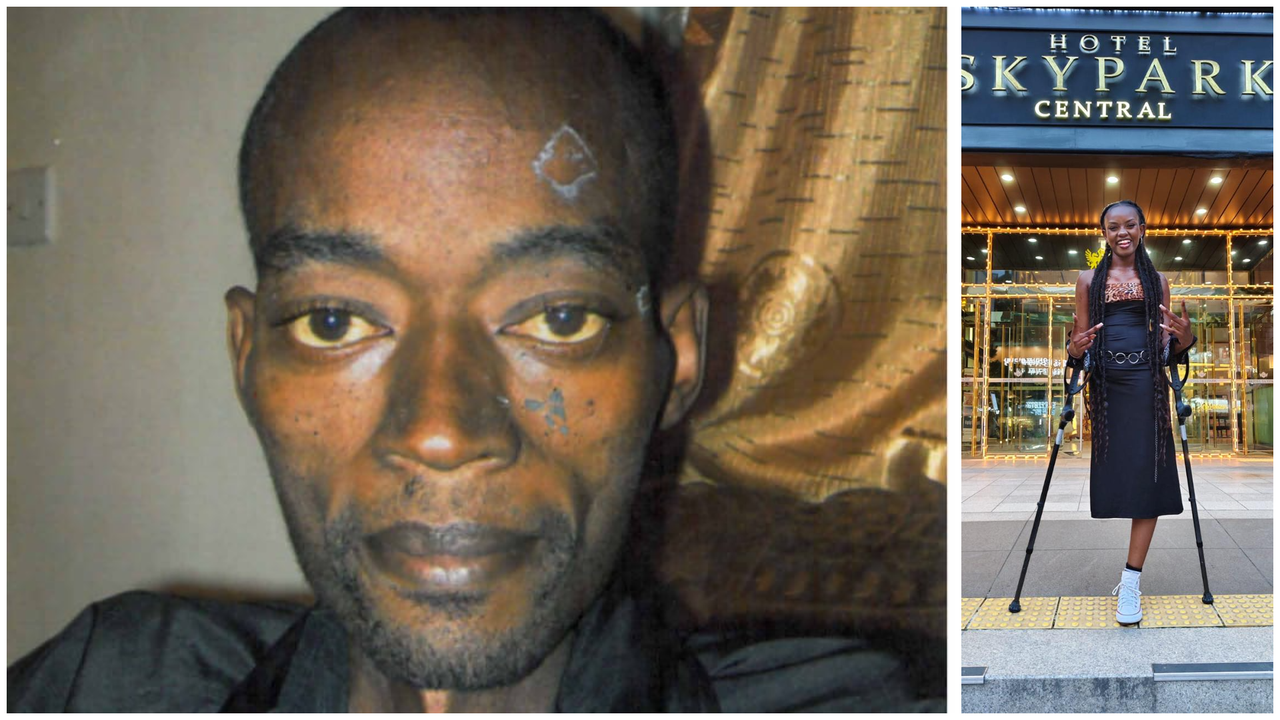Meet the Kenyan family passing down a rare cancer gene

When celebrated sports journalist Elly Abong’o died of colon cancer in May 2010, his three-year-old daughter Fridah Lakita could not fully grasp what was happening.
Elly was a celebrated Citizen TV sports anchor who also worked with the BBC Swahili Service and Radio Simba. He left behind a three-year-old daughter who “innocently and helplessly watched her father fight the ailment.”
She only knew that playtime with her father had become shorter, walks had grown fewer, and that one day he was gone.
But the tragedy did not end there. Seven years later, Fridah was diagnosed with osteosarcoma, a bone cancer, that led to the amputation of her right leg.
Doctors later revealed both father and daughter carried Li-Fraumeni Syndrome (LFS), a rare genetic condition that dramatically increases the risk of multiple cancers across generations.
"Elly was orphaned at a tender age, and his mother, brother and sister, who have all died, are suspected to have all died of cancer-related disorders,” wife of Elly, Joyce Abong’o said.
Li-Fraumeni Syndrome, first described in 1969, is caused by mutations in the TP53 gene, sometimes called the “guardian of the genome.” This gene normally prevents damaged cells from turning cancerous. When mutated, the body loses a crucial defence system.
According to the LFS Association, individuals with the condition have a 90% chance of developing cancer before age 60.
Sarcomas, breast cancer, brain tumours, leukaemia, and adrenal cancers are common, but others may also appear. Families often see multiple members develop cancer, sometimes at young ages, making genetic testing and early screening essential.
“Cancers related to this condition may occur at any age, but a characteristic feature is a high risk in childhood,” notes the LFS Association.
For Fridah, treatment has been difficult. After chemotherapy, she developed Myelodysplastic Syndromes, a blood disorder caused by abnormalities in bone marrow cells. Since 2018, she and her mother have been travelling annually to India for check-ups, surgeries, and prosthesis adjustments, an expensive, emotionally draining routine.
Joyce, once a film journalist, left her career to care for her late husband and now her daughter. She says the burden is not just medical but also financial and cultural.
“Many Africans believe LFS is a form of curse of some sort, and they likely are not educated or there has not been consistent awareness to educate people about LFS,” Joyce says. “There is a lot of stigmatisation for many patients if they happen to experience LFS disorders or cancer within the family set-up, thereby causing a lot of trauma to the families.”
Globally, advocacy groups like the Li-Fraumeni Syndrome Association (LFSA) have created international workshops to support patients. The 2025 Youth Workshop in Boston gathered families, doctors, and researchers for mentoring, genetic counselling, and lab tours.
Although Fridah could not attend due to treatment in India, these gatherings provide rare solidarity for patients scattered across the world.
In Africa, awareness is still limited. Samuel Omolo, a Kenyan researcher and LFSA Africa Chapter lead, is working to map inheritance patterns and prevalence rates on the continent.
“At the moment, I have been studying this rare syndrome and genetic predisposition in Africa to understand the inheritance patterns, founder gene, prevalence rate in Africa and how to increase advocacy by involving like-minded researchers from different African countries,” Omolo added
LFS may affect only around 1,000 families globally, but its impact is devastating. For families like the Abong’os, it means generations haunted by repeated cancer diagnoses, financial strain, and stigma.
Experts argue that genetic testing and early screening are key to managing the disorder — but in Kenya, access remains scarce. This forces families to travel abroad at immense cost.
This story is written and edited by the Global South World team, you can contact us here.